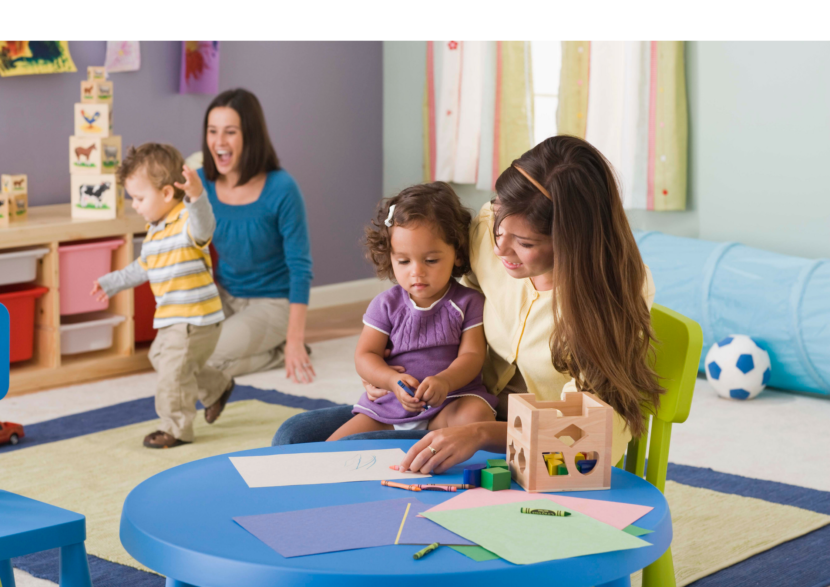Most early childhood educators know settling a child into a new place is very emotional for both parents and the child. It’s a major transition and can be due to the child moving into a new room or starting care in a new service. In any of these circumstances, children can experience extreme difficulties separating from parents or caregivers. One way educators can help children make this transition smoother is with mindfulness.
What Is Mindfulness?
Mindfulness is the practice of tuning into the present moment. There is a whole mind-body state of awareness, which focuses on the now, not the past or future.
Why Practice Mindfulness With Children?
Children experiencing trouble separating from family and settling into a care service are in a heightened state of anxiety and stress.
Their nervous system is prepared for fight or flight. It can be difficult for them to regulate their emotions, especially young children who are still getting a grasp on big feelings.
Educators can alleviate this by implementing mindfulness strategies. Research shows mindfulness can benefit young children in these ways:
• Reduce stress and anxiety
• Improve mental and emotional health
• Enhance self esteem and resilience
• Improve emotional regulation and increase calmness
• Increase social and physical wellbeing
• Improve cognitive skills, concentration and memory.
Tips For Educators To Introduce Mindfulness
Helping children to settle calmly into a care setting sets the tone of their day, improves their learning and enjoyment of their world. It teaches them to find calm when they’re upset, and make better decisions.
So where do educators start teaching mindfulness to children?
• Have a class motto: this can be anything which sets a tone of empathy, kindness or sense of self awareness.
• Set up kindness guidelines: kindness underlies mindfulness practices. Set basic intentions about using kind words, kind hands, etc.
• Child photo: this helps children identify themselves in the setting and creates familiarity.
• One on one time: provide empathy to a child, allow them to share their feelings and give them reassurance.
• Recognise emotional withdrawal: gently encourage children to participate in activities or ask them to be your helper.
• Lean into their interests: find out what they like and use those interests to engage them in play or exploration.
• Build connections: other confident and settled children can be play buddies.
• Be positive and calm: speak to the child with care and calmness, which can boost their confidence
• Set a routine: daily routines can help alleviate anxiety if children know what to expect
• Security toys: a transitional toy is something permanent that provides a sense of calm and safety
• Encourage quick drop off: parents shouldn’t prolong goodbyes but should always be clear about leaving not disappearing.
• Empathise and support: always respect the child’s feelings, being dismissed negatively can harm their self esteem and undermine their ability to learn to calm.
Some early childhood educators may wish to encourage children to practice mindfulness with a guided meditation. This can teach children skills they can tap into when they’re upset.
These can be quite simple like playing games which help them to breathe deeply, like they’ve smelled something yummy. Take a mindfulness walk in the yard and ask children to notice as many things from nature as they can. Explore the five senses and how the objects makes them feel. Use mindful poses to help them seek body awareness which connects to their minds. Superman or Wonder Woman pose can help them to feel strong and capable. Mindful jars are also an excellent way to help children focus on the moment. This calms their minds and allows regulation to come to the fore. Fill a jar with water and glitter, making sure the lid is glued on tight. Engage their ‘spidey senses’ of smell, sight, hearing, taste, and touch that Spiderman uses. This can pause and ground children who are really struggling.
Sam McCulloch is a freelance content writer and editor, with a special interest in parenting, birth and early education. Sam believes in the importance of building a village so no parent is left behind or feels unsupported. When she’s not writing great content, you can find her trying to keep up with three kids, enjoying the great outdoors or reading a good book.





